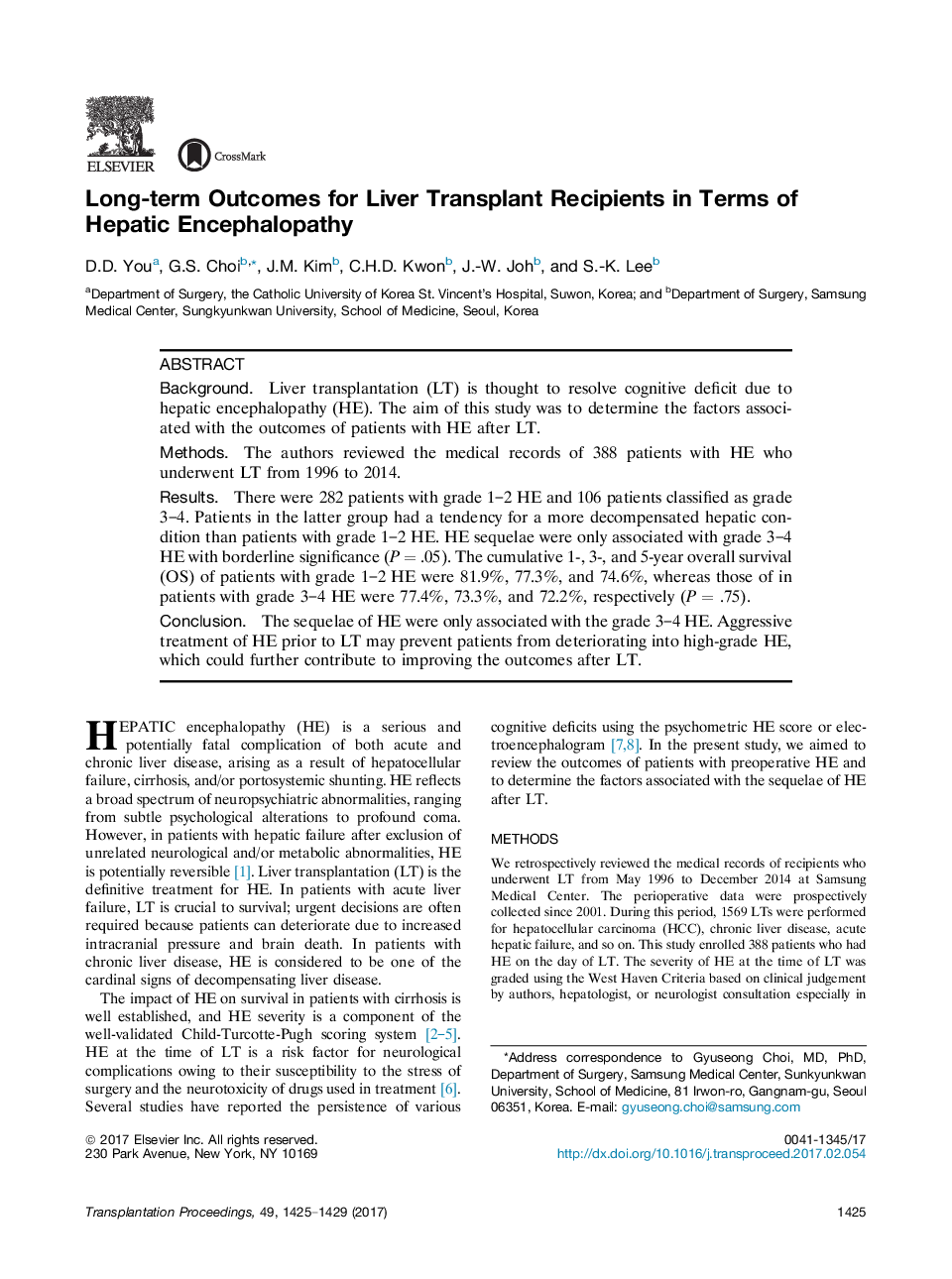| Article ID | Journal | Published Year | Pages | File Type |
|---|---|---|---|---|
| 5728704 | Transplantation Proceedings | 2017 | 5 Pages |
â¢The sequelae of HE were only associated with grade 3-4 HE.â¢SBP and uncontrolled ascites were more prevalent in patients with grade 1-2 HE than patients with grade 3-4 HE.â¢There was no difference in OS between the patients with HE grade 1-2 and grade 3-4.
BackgroundLiver transplantation (LT) is thought to resolve cognitive deficit due to hepatic encephalopathy (HE). The aim of this study was to determine the factors associated with the outcomes of patients with HE after LT.MethodsThe authors reviewed the medical records of 388 patients with HE who underwent LT from 1996 to 2014.ResultsThere were 282 patients with grade 1-2 HE and 106 patients classified as grade 3-4. Patients in the latter group had a tendency for a more decompensated hepatic condition than patients with grade 1-2 HE. HE sequelae were only associated with grade 3-4 HE with borderline significance (P = .05). The cumulative 1-, 3-, and 5-year overall survival (OS) of patients with grade 1-2 HE were 81.9%, 77.3%, and 74.6%, whereas those of in patients with grade 3-4 HE were 77.4%, 73.3%, and 72.2%, respectively (P = .75).ConclusionThe sequelae of HE were only associated with the grade 3-4 HE. Aggressive treatment of HE prior to LT may prevent patients from deteriorating into high-grade HE, which could further contribute to improving the outcomes after LT.
